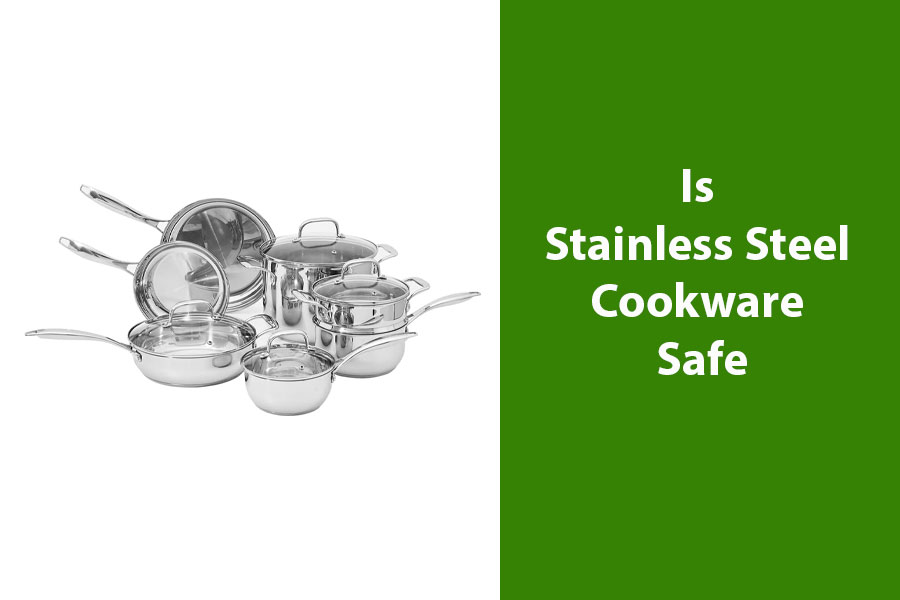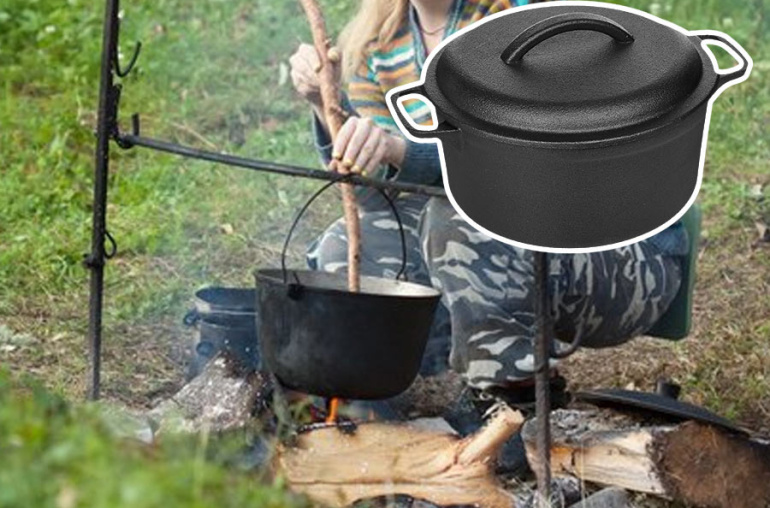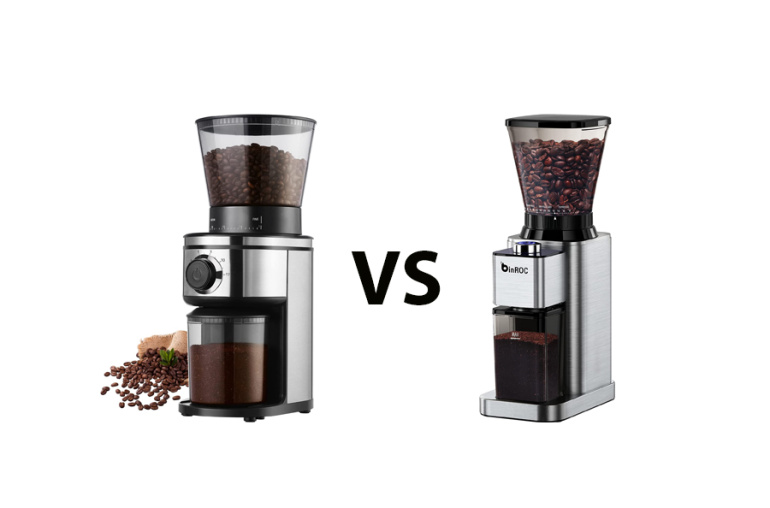If you are concerned about your health, then using safe cookware is crucial for your cooking. There are various types of cookware that are made with different materials. However, not all of them are considered safe to use.
So what about stainless steel? Is stainless steel cookware safe to use? Here we will be finding the answer on whether it is safe to use or not. We will also be mentioning some safety precautions if you are allergic to nickel.
Contents
- 1 Can You Use Stainless Steel Cookware Safely?
- 2 Understanding the Composition of Stainless Steel
- 3 Does Grade Matter for Stainless Steel?
- 4 Does Stainless Steel Cookware Leaches Harmful Chemicals?
- 5 Does Acidic Foods React with Stainless Steel?
- 6 What Safety Considerations Should Be Taken for Nickel Allergies?
- 7 How to Maintain Your Stainless Steel Cookware?
- 8 FAQ
- 9 Conclusion
Can You Use Stainless Steel Cookware Safely?
Stainless steel cookware is safe to use for food preparation. It is long-lasting, has no reactive qualities, and is corrosion- and rust-proof. Stainless steel cookware provides low health concerns when used and maintained properly.
People who are allergic to or sensitive to nickel should exercise caution while using any kind of cookware, especially 18/10 stainless steel. Make sure your kitchen is safe and efficient by using stainless steel cookware, following the manufacturer’s instructions, and using suitable cooking procedures.
Click here: What Is the Safest Cookware for Your Health?
Understanding the Composition of Stainless Steel
Understanding the components of stainless steel cookware is crucial for determining its safety. Stainless steel is an iron-based alloy that also contains chromium, nickel, and sometimes additional metals. Different grades of stainless steel may include differing amounts of the components that give it its distinctive qualities.
- Chromium: The extra layer of chromium is what gives stainless steel its distinctive shine. It coats the pots and pans with a barrier that keeps them from rusting and corroding.
- Nickel: Stainless steel’s corrosion and heat resistance are both improved by the addition of nickel. However, some people may be allergic to or sensitive to nickel, casting doubt on the safety of stainless steel cookware.
Does Grade Matter for Stainless Steel?
Stainless steel cookware varies greatly in quality. The most popular stainless steel grades for cookware are 18/8 and 18/10. The figures indicate the proportions of chromium and nickel in the alloy.
For example, 18/8 stainless steel has 18% chromium and 8% nickel.
There are 18% chromium and 10% nickel in 18/10 stainless steel.
18/10 stainless steel has a higher nickel content, making it more resistant to corrosion and lasting longer in general use. However, those who are sensitive to nickel may be concerned about the increased nickel concentration.
Does Stainless Steel Cookware Leaches Harmful Chemicals?
When used properly, cookware made of high-quality stainless steel will not allow potentially dangerous substances into the food being prepared. The chromium-rich protective coating that covers the surface of the bowl prevents metals from leaching into the food you eat. However, the condition and quality of the cookware are important factors to consider. Leaching may be more likely to occur in stainless steel that is of lower grade or that has been damaged.
Does Acidic Foods React with Stainless Steel?
Cooking acidic items such as tomatoes or citrus with stainless steel should not cause any problems. Even after being in contact with acidic chemicals, the chromium oxide layer that covers the surface of the cookware does not change, preventing any undesirable reactions from occurring.
What Safety Considerations Should Be Taken for Nickel Allergies?
When using stainless steel cookware, it is essential to take extra measures if you are aware of having an allergy or sensitivity to nickel. Some of the measures are given below:
- Look for low-nickel options: Choose cookware with reduced nickel content, such as 18/8 stainless steel, or explore other materials, such as cast iron or ceramic, as possible alternatives.
- Don’t use damaged cookware: Regularly check the condition of your stainless steel cookware. If you observe any symptoms of degradation, such as chipping or peeling of the surface, you should consider replacing it to limit the risk of nickel exposure.
- Season your cookware properly: To develop a natural non-stick coating on your stainless steel cookware, you may season it by heating a tiny quantity of oil in it. This may further reduce the threat of nickel exposure.
- Check for reactions: If you think you have a nickel allergy, pay close attention to whether or not you have any discomfort after ingesting meals prepared with stainless steel cookware.
How to Maintain Your Stainless Steel Cookware?
One method for preserving the durability and longevity of your stainless steel cookware is to take good care of it. Take good care of your stainless steel cookware by following the following suggestions:
- You need to clean your stainless steel firmly.
- Don’t put scratches on your stainless steel.
- Don’t put severe damage or cracks on the cookware to reduce its integrity.
- The metals in the stainless steel can leach into your food if there is wear.
- and tear. It is high time for a replacement if you see your cookware getting degraded.
FAQ
Can I use stainless steel cookware safely for cooking?
Due to its non-reactive qualities, durability, and resistance to corrosion, stainless steel cookware is widely accepted as safe for use in the kitchen. But there are other factors to think about, such as nickel content, for those with allergies.
Can my stainless steel cookware handle high temperatures?
Stainless steel cookware, unlike other materials, does not deform or leach dangerous chemicals when exposed to high temperatures. Searing and deglazing are two methods that work well with it.
Can I cook acidic food using stainless steel cookware?
Because its protective layer stays stable even when exposed to acidic components like tomatoes or citrus, stainless steel is typically suitable for cooking acidic meals.
Is it mandatory to season stainless steel cookware?
Although it is not required, seasoning stainless steel cookware by heating a small quantity of oil in it may develop a natural non-stick coating that may increase the functionality and safety of the cookware.
Conclusion
In conclusion, stainless steel cookware is a wise investment due to its safety, dependability, and low maintenance requirements. Stainless steel cookware is a safe and adaptable addition to any kitchen, despite some people having safety concerns due to nickel allergies.
I live in New York, United States. I did my graduation the City University of New York. Now I am a housewife. I am passionate about cooking and I also specialize in cookware and kitchen appliances. I have 6 years more of experience with cookware and kitchen appliances product review. If you have any queries about cookware and kitchen appliances you can easily contact us.





